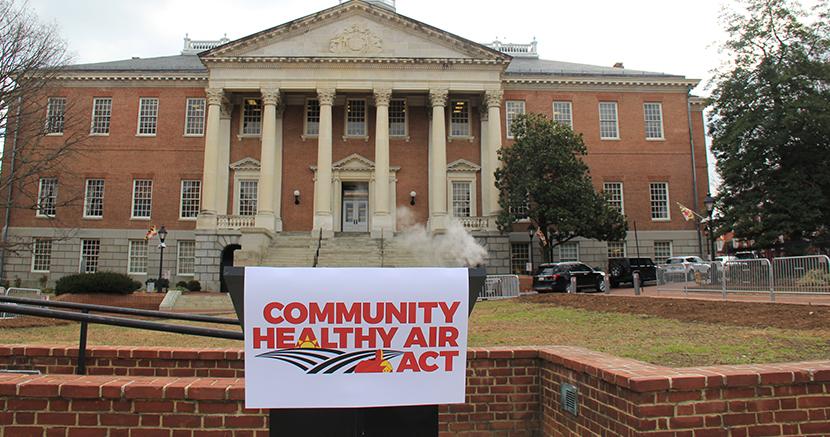
Environmental injustices abound in Maryland. From industrial pollution in Baltimore to unsafe worker conditions on the Eastern Shore, disadvantaged communities often bear the brunt of environmental harms.
In a letter to Governor Larry Hogan and his administration, Associate Professor Sacoby Wilson-- along with the executive director of the Assateague Coastal Trust and seven other community health, environmental justice and civil rights leaders-- stated that Maryland is not doing enough to combat these injustices.
“Systemic racism has taken on egregious forms, as in Stop and Frisk and the Redlining of our cities,” authors of the letter wrote. “But this systemic racism also comes in the more subtle, but insidious and pervasive shape embodied by government siting and permitting decisions or the denial of representation on a government commission. This type of systemic racism is known as environmental racism.”
The Maryland Department of the Environment (MDE) created a Commission on Environmental Justice and Sustainable Communities in 2001. But according to Wilson and his co-authors, the commission hasn’t done anything to create meaningful change, and has not involved communities that sit at the frontlines of environmental injustice.
“It’s been disappointing to see the lack of real leadership and action by our state agencies in regards to environmental justice,” Wilson said. “There’s a lot of activity talking about issues, but there’s no plan to take those discussions and turn them into action.”
In the letter, the authors called for the commission to be rechartered, for the MDE to create an environmental justice plan and for the governor’s office to show a greater commitment to addressing systemic racism and advancing environmental justice.
Wilson has sat on the National Environmental Justice Advisory Committee (NEJAC), a federal advisory committee to the Environmental Protection Agency (EPA) for three years. NEJAC frequently holds public meetings, where they’ve heard from people who were impacted by the Flint, Michigan water crisis, by explosions in Texas and by exposures to pesticides. Each time, the coalition makes recommendations to the EPA, who often implement the recommendations.
The same kind of engagement needs to happen at the state level, Wilson said.
“My advice to the Maryland Department of the Environment is to have an environmental justice plan that is informed by residents near pollution centers, and others who have been impacted by environmental justice,” Wilson said. “They haven’t been engaging front line residents.”
He said that the newly rechartered commission needs to create a plan for how the concerns will be addressed, metrics to measure success and accountability plans to report back to stakeholders and the public.
But it’s not just the MDE that needs this accountability-- every state agency should have milestones and metrics to address concerns of environmental justice, Wilson says.
“What’s important to environmental justice is that people have a voice, folks who actually come from communities that are impacted,” Wilson said. “Through this letter, we want their voices to be heard.”
Related Links: